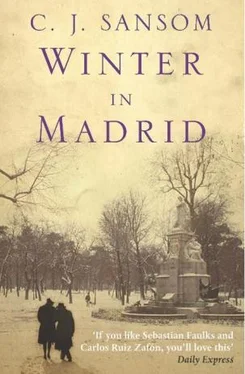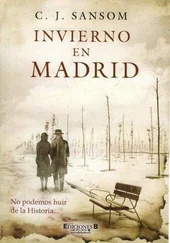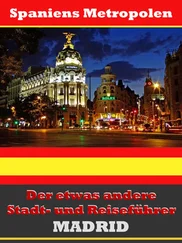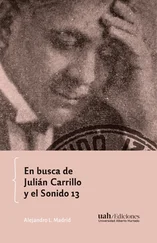The morning after the bombing Harry had been driven from London to a mansion in the Surrey countryside, where he had spent the entire three weeks. He never knew its name or even where it was exactly. It was a Victorian redbrick pile; something about the layout of the rooms, the uncarpeted floors and a faint, indefinable smell, made him think it had once been a school.
The people who trained him were mostly young. There was something eager and adventurous about them, a quickness of reaction and an energy that made them seize your attention, hold your eye, take charge of the conversation. Sometimes they reminded Harry oddly of eager salesmen. They taught him the general business of spying: letterdrops, how to tell if you were being watched, how to get a message out if you were on the run. Not that that would happen to Harry, they reassured him – he had diplomatic protection, a useful by-product of his cover.
From the general they moved to the specific: how to deal with Sandy Forsyth. They made him do what they called role-plays, a former policeman from Kenya playing Sandy. A suspicious Sandy, doubting his story; a drunk and hostile Sandy asking what the fuck Brett was doing here, he had always hated him; a Sandy who was himself a spy, a secret Fascist.
‘You don’t know how he’ll react to you, you have to be prepared for every possible eventuality,’ the policeman said. ‘You have to adapt yourself to his moods, reflect what he’s thinking and feeling.’
Harry had to be absolutely consistent in his own story, they said, it had to be watertight. That was easy enough. He could be absolutely truthful about his life up to the day Will had received the telephone call from the Foreign Office. In the cover story they had rung looking for a translator to replace a man in Madrid who had to leave suddenly. Harry soon had it pat, but they told him there was still a problem. Not with his face, but with his voice; there was an uncertainty, almost a reluctance, when he told his story. A sharp operator, as Forsyth appeared to be, might pick up that he was lying. Harry worked at it and satisfied them after a while. ‘Of course,’ the policeman said, ‘any oddness in tone could be put down to your little bit of deafness, that can affect the voice. Play that up, and tell him about the panics you had after Dunkirk as well.’
Harry was surprised. ‘But those have gone, I don’t get them any more.’
‘You feel them coming still, don’t you? You manage to suppress them but you feel them coming?’ He glanced at the file on his knees; Harry had his own buff file with a red cross and ‘secret’ on it now. ‘Well, play up to that – a moment’s confusion, like pausing to ask him to repeat something, can play to your advantage. Gives you time to think and fixes you in his mind as an invalid, not someone to be afraid of.’
The information about his panics had come, Harry knew, from the odd woman who had interviewed him one day. She never said who she was but Harry guessed she was some sort of psychiatrist. She had something of the busy eagerness of the spies about her. The gaze from her blue eyes was so penetrating that Harry recoiled for a second. She shook his hand and cheerfully asked him to sit down at the little table.
‘Need to ask a few personal questions, Harry. I may call you Harry?’
‘Yes – er …’
‘Miss Crane, call me Miss Crane. You seem to have led a pretty straightforward life, Harry. Not like some of the rum ’uns we get here, I can tell you.’ She laughed.
‘I suppose I have. An ordinary life.’
‘Losing both parents when you were so young, though, that can’t have been easy. Passed around between uncles and aunts and your boarding school.’
That made him suddenly angry. ‘My aunt and uncle have always been kind. And I was happy at school. And Rookwood’s a public school, not a boarding school.’
Miss Crane eyed him quizzically. ‘Is there a difference?’
‘Yes, there is.’ The heat that came into his voice surprised Harry. ‘A boarding school makes it sound like a place where you’re just left, to mark time. Rookwood – a public school, you’re part of a community, it becomes part of you, shapes you.’
She still smiled but her reply was brutal. ‘Not the same as having parents who love you, is it?’
Harry felt his anger being replaced by heavy weariness. He lowered his gaze. ‘You have to deal with things as they are, make the best of things. Soldier on.’
‘On your own? There isn’t a girlfriend, is there? Anyone?’
He frowned, wondering if she was going to start making suggestions about his sex life, like Miss Maxse had. ‘There isn’t now. There was someone at Cambridge, but it didn’t work out.’
‘Why was that?’
‘Laura and I got bored with each other, Miss Crane. Nothing dramatic.’
She changed the subject. ‘And after Dunkirk? The shell shock, when you found you were having panic attacks, were frightened of loud noises. Did you decide to soldier on then, too?’
‘Yes, not that I was a soldier any more. I won’t be again.’
‘Does that make you angry?’
He looked at her. ‘Wouldn’t you be?’
She inclined her head reprovingly. ‘It’s you we’re here to talk about, Harry.’
He sighed. ‘Yes, I decided to soldier on.’
‘Were you tempted not to? To retreat into – being an invalid?’
He looked at her again. God, she was sharp. ‘Yes, yes, I suppose I was. But I didn’t. I started by going into the hospital grounds, then crossing the road, then walking into town. It got easier. I wasn’t as badly affected as some poor sods.’
‘Must have taken courage, guts. Like helping your cousin’s family in the bombing the night before you came here.’
‘You go on or go under. That’s life these days, isn’t it?’ he replied sharply. ‘Even when you’ve seen everything you took for granted, believed in, smashed to pieces.’ He gave a long sigh. ‘I think the sight of everyone retreating on that beach, the chaos, all that affected me as much as the shell that nearly hit me.’
‘But soldiering on, it must be very lonely.’
Her voice was suddenly gentle. Harry found his eyes filling with tears. He said, without intending to, ‘That night in the shelter, it was so strange. Muriel, Will’s wife, she took my hand. We’ve never got on, I always felt she resented me, but she took my hand. Yet …’
‘Yes?’
‘It felt so dry. So cold. I felt – sad.’
‘Perhaps it wasn’t Muriel’s hand you wanted.’
He looked at her. ‘No, you’re right,’ he said in surprise. But I don’t know whose I did want.’
‘We all need someone’s hand.’
‘Do we?’ Harry laughed uneasily. ‘This is a long way from my mission.’
She nodded. ‘Just getting to know you, Harry, just getting to know you.’
HARRY WAS JERKED out of his reverie as the plane tilted. He clutched at the arms of his seat and looked out of the window, then leaned forward and stared out. They had come out into sunshine again, they were over land. Spain. Harry looked down at the Castilian landscape, a sea of yellow and brown dotted with patchwork fields. As the plane circled lower he made out white empty roads, red-tiled houses, here and there a jumble of ruins from the Civil War. Then the pilot said they were about to land at Barajas airport and a few minutes later they were down on the runway, the engines stopped and he was here, in Spain. He felt a mixture of excitement and fear; he could still hardly believe he was actually back in Madrid.
Looking out of the window he saw half a dozen civil guards standing outside the terminal building, staring over the runway. Harry recognized their dark green uniforms, the yellow holsters clipped to their belts. They still wore their sinister, archaic leather hats, round with two little wings at the back, black and shiny like a beetle’s carapace. When he first came to Spain in 1931 the civiles , old supporters of the right, had been under threat from the Republic and you could see the fear and anger in their hard faces. When he returned in 1937, during the Civil War, they were gone. Now they had returned and Harry felt a dryness in his mouth as he looked at their faces, their cold, still expressions.
Читать дальше












